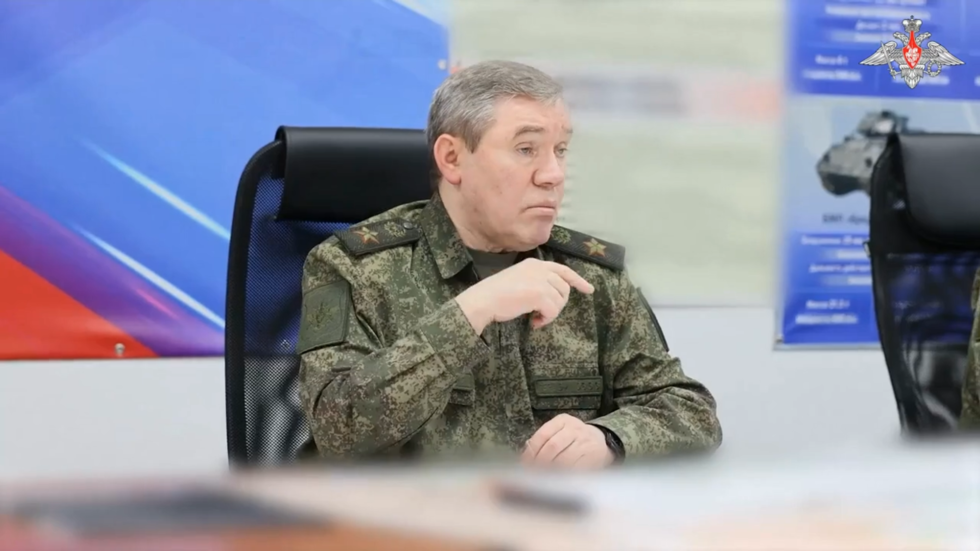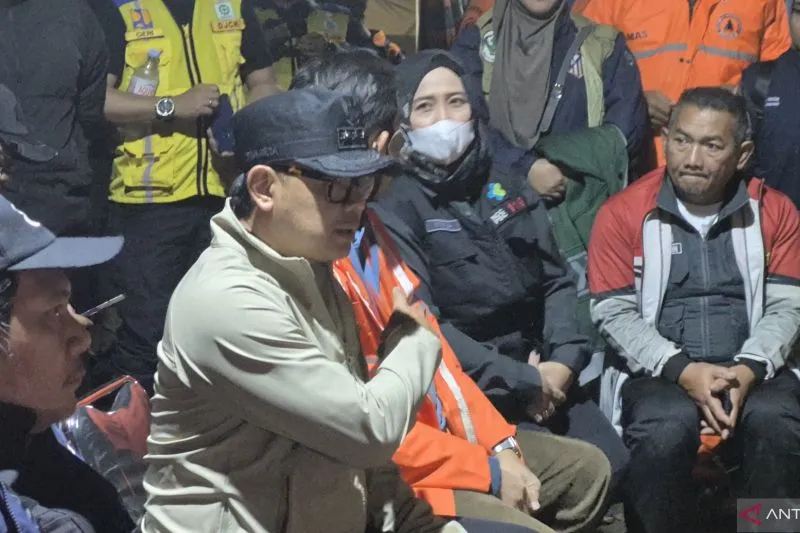Katherina Reiche, menteri perekonomian Jerman menyampaikan, bahwa Jerman harus mencari mitra baru mengingat perubahan tatanan global, pada hari Selasa, 27/01/2026, merujuk pada memburuknya hubungan dengan Amerika Serikat yang telah mengakibatkan tarif impor yang menyakitkan.
"Dunia menjadi lebih tidak pasti, dan aliansi yang telah kita percayai dan andalkan mulai runtuh," kata Katherina Reiche di KTT energi Handelsblatt.
"Itu tidak berarti meninggalkan mereka, tetapi lebih kepada terus bekerja sama, betapapun menantangnya hal itu dalam beberapa kasus, dan yang terpenting mencari mitra baru."
Mencari aliansi ekonomi baru juga akan memainkan peran kunci dalam meningkatkan perekonomian Jerman, yang terbesar di Eropa, yang menurut Reiche diperkirakan hanya akan mengalami pertumbuhan selama dua tahun karena investasi yang didanai utang di bidang pertahanan dan infrastruktur.
"Kita berbicara tentang pertumbuhan produk domestik bruto (PDB) sebesar 1%, 1,5%," katanya. "Ini tidak berkelanjutan."
Pemerintah Jerman diperkirakan akan menurunkan perkiraan pertumbuhan pada tahun 2026 menjadi 1,0% dari 1,3% PDB pada hari Rabu, kata seseorang yang mengetahui masalah tersebut pekan lalu, sementara pertumbuhan PDB pada tahun 2027 diperkirakan sebesar 1,3%.
India dan Uni Eropa mencapai kesepakatan perdagangan penting, tarif akan dipangkas untuk sebagian besar barang
India dan Uni Eropa mencapai kesepakatan yang telah lama tertunda pada hari Selasa yang akan memangkas tarif pada sebagian besar barang, bertujuan untuk meningkatkan perdagangan dua arah dan mengurangi ketergantungan pada Amerika Serikat di tengah meningkatnya ketegangan perdagangan global.
Kesepakatan ini diharapkan dapat menggandakan ekspor Uni Eropa ke India pada tahun 2032 dengan menghilangkan atau mengurangi tarif pada 96,6% barang yang diperdagangkan berdasarkan nilai, dan akan menghasilkan penghematan sebesar 4 miliar euro (4,75 miliar dolar AS) dalam bea masuk bagi perusahaan-perusahaan Eropa, kata Uni Eropa.
Uni Eropa akan memangkas tarif pada 99,5% barang yang diimpor dari India selama tujuh tahun, dengan tarif akan dipangkas menjadi nol untuk barang-barang kelautan India, produk kulit dan tekstil, bahan kimia, karet, logam dasar, serta permata dan perhiasan, kata Kementerian Perdagangan India dalam sebuah pernyataan.
India dan Uni Eropa mengatakan barang-barang terkait pertanian seperti kedelai, daging sapi, gula, beras, dan produk susu telah dikecualikan dari cakupan kesepakatan perdagangan ini.
"Kemarin, sebuah kesepakatan besar ditandatangani antara Uni Eropa dan India," kata Perdana Menteri India Narendra Modi sebelumnya.
"Orang-orang di seluruh dunia menyebut ini sebagai kesepakatan terbesar sepanjang masa. Perjanjian ini akan membawa peluang besar bagi 1,4 miliar penduduk India dan jutaan orang di Eropa," katanya.
Perundingan perdagangan Uni Eropa-India yang berlangsung selama dua dekade mendapatkan momentum setelah Washington memberlakukan tarif 50% pada beberapa barang India, dan ketika sekutu AS menolak ancaman tarif Presiden Donald Trump dan upayanya untuk mengambil alih Greenland.
Perdana Menteri Kanada Mark Carney, dalam pidato yang mendapat tepuk tangan meriah di Davos pekan lalu, mendesak negara-negara kekuatan menengah untuk bersatu agar tidak menjadi korban. Ia berencana mengunjungi India untuk menandatangani kesepakatan tentang uranium, energi, dan mineral, setelah baru-baru ini mencapai kesepakatan dengan China.
Sebelum menandatangani kesepakatan dengan New Delhi, Uni Eropa menyetujui pakta dengan blok Amerika Selatan Mercosur, menyusul kesepakatan tahun lalu dengan Indonesia, Meksiko, dan Swiss. Selama periode yang sama, New Delhi menyelesaikan pakta dengan Inggris, Selandia Baru, dan Oman.
"Eropa dan India sedang membuat sejarah hari ini," kata Presiden Komisi Eropa Ursula von der Leyen. "Ini baru permulaan."
Perdagangan antara India dan Uni Eropa mencapai $136,5 miliar pada tahun fiskal hingga Maret 2025, dibandingkan dengan perdagangan antara India dan AS sebesar $132 miliar, dan $128 miliar antara India dan China.
Penandatanganan resmi kesepakatan India-UE akan dilakukan setelah proses verifikasi hukum yang diperkirakan berlangsung selama lima hingga enam bulan, kata seorang pejabat pemerintah India yang mengetahui masalah tersebut.
Membuka Sektor Yang Terjaga
Kesepakatan Uni Eropa dengan India akan membuka pasar negara Asia Selatan yang luas dan sangat dijaga ketat ini, dengan New Delhi memangkas tarif mobil menjadi 10% selama lima tahun dari sebelumnya setinggi 110%, menurut pernyataan Uni Eropa, yang menguntungkan produsen mobil Eropa seperti Volkswagen, Renault, Mercedes-Benz, dan BMW.
Tarif yang dikurangi untuk mobil akan diberikan kepada 250.000 mobil per tahun yang bernilai lebih dari 15.000 euro dan akan dipotong menjadi 30%-35% segera setelah kesepakatan diterapkan, kata kedua belah pihak.
India juga memangkas tarif minuman beralkohol seperti anggur menjadi 75% segera dari 150%, yang akan diturunkan secara bertahap menjadi 20%. Tarif minuman keras akan diturunkan menjadi 40%, kata Uni Eropa.
Kesepakatan ini juga akan memangkas tarif sejumlah barang Uni Eropa yang masuk ke India termasuk mesin, peralatan listrik, bahan kimia, dan besi dan baja, kata Uni Eropa.
Namun, tidak ada bantuan langsung bagi perusahaan-perusahaan India yang terkena pajak karbon di bawah Mekanisme Penyesuaian Batas Karbon (CBAM) Uni Eropa yang dimulai pada 1 Januari.
Selain baja, pungutan yang berorientasi pada dekarbonisasi ini juga berlaku untuk semen, listrik, pupuk, dan produk lainnya. India mengatakan telah mendapatkan komitmen dari Uni Eropa bahwa mereka akan mendapatkan fleksibilitas dalam pajak karbon jika diberikan kepada negara ketiga mana pun.
Secara terpisah, Uni Eropa setuju untuk memberikan dukungan keuangan sebesar 500 juta euro selama dua tahun ke depan untuk membantu India dalam mengurangi emisi gas rumah kaca.
($1 = 0,8422 euro)










